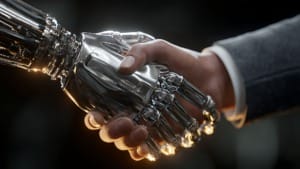Robot completing household chores sparks debate over the future of home automation
Humanoid robot performs household chores in new video, raising questions about autonomy and the future of home robotics.

A new video showing a humanoid robot performing everyday household chores with surprising ease has prompted widespread discussion about the future of domestic robotics. The footage, released by Chinese startup MindOn on 14 November, claims to show the robot completing each task at real speed and without any form of teleoperation.
Table Of Content
Robot showcases a wide range of home tasks
In the video shared on X by The Humanoid Hub, MindOn’s customised Unitree G1 robot can be seen undertaking various chores in different home environments. These include drawing curtains, watering plants, tidying surfaces, and even delivering a wrapped gift. The clip quickly attracted attention for the robot’s smooth, natural movements, which appear more advanced than those of many previous industry demonstrations.
Chinese startup MindOn trained Unitree G1 to do house chores.
— The Humanoid Hub (@TheHumanoidHub) November 14, 2025
“No speed up, no teleoperation” pic.twitter.com/CMNK3Wjl3n
MindOn stated that the performance was achieved through its in-house training system, which enables the robot to carry out the tasks shown. The startup reiterated this by highlighting that there was “no speed up, no teleoperation”.
Despite the impressive demonstration, questions remain about the robot’s broader autonomy. The video shows the robot beginning each task already positioned correctly, with no transition footage between activities. Viewers have noted this, with one commenter pointing out that the robot was already holding the curtains at the start of the opening clip. This has raised uncertainty about how long it took to initiate the action, particularly since delicate hand coordination remains one of the most challenging tasks in robotics research.
How MindOn and Unitree are advancing humanoid robotics
The display is the result of a collaboration between two organisations. Unitree, a well-known robotics company whose products have frequently appeared in global tech coverage, is responsible for building the G1 humanoid robot. MindOn, a recently founded startup based in China, purchased the G1 and developed a custom “brain” to enable the chore-performing abilities demonstrated in the video.
Co-founder Zhou Qinqin, a former research engineer at Tencent Robotics, leads the MindOn team. She studied mechatronic engineering at the Beijing Institute of Technology and has developed several control algorithms used in Tencent’s robotic products. Qinqin also holds multiple patents related to robot control systems, adding to the credibility of the startup’s technological ambitions.
Unitree’s G1 platform is growing in popularity among researchers worldwide. Engineers from institutions such as MIT and Stanford are also using the model to test their own software, thanks to its versatility and relatively accessible design.
A glimpse of the future, but challenges remain
The idea of a household robot capable of managing daily chores continues to capture the public imagination. However, experts note that it may still be several years before a fully autonomous, consumer-ready home assistant becomes available. The controlled nature of the recent demonstration suggests that additional work is needed to ensure reliability and safety in real-world settings where unpredictability is constant.
Other companies are also exploring the concept. California-based Figure has recently unveiled a robotic “butler”, though it remains in the testing stage. Meanwhile, 1X Technologies’ new NEO robot can operate independently in some situations, but still requires a remote operator for more complex tasks. These developments demonstrate strong momentum in the sector, despite technical limitations that continue to pose significant challenges.
















